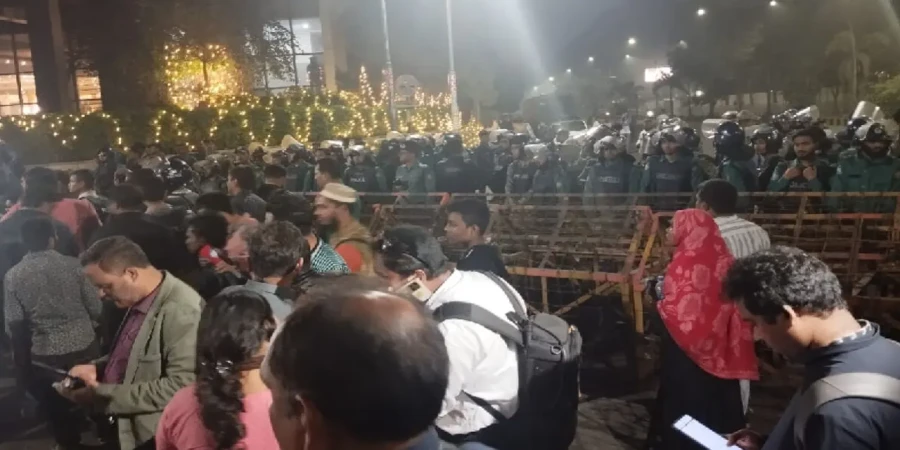
ছবি: Photo: Collected
Protesters injured in the July uprising gathered in front of Hotel Intercontinental in Dhaka after facing police resistance on their way to the Chief Advisor’s residence in Jamuna. The demonstrators, demanding the fulfillment of their seven-point agenda, blocked the road in Shahbagh, refusing to leave until their voices were heard.
On Sunday evening, as they attempted to move towards the Chief Advisor’s residence, police stopped them near the hotel. In response, the protesters staged a sit-in on the road, continuing their demonstration. Earlier in the day, they had blocked Mirpur Road at Agargaon and Shishumela intersections, calling for proper medical treatment, rehabilitation, and state recognition.
The demonstrators argued that many of them still suffer from injuries sustained during the uprising, with some losing limbs or their eyesight due to police gunfire and tear gas. They accused the government of failing to provide them with adequate healthcare and assistance. Some protesters lay on blankets in the middle of the road, while others sat on benches, emphasizing their determination to fight for justice.
One of the protesters, Md. Ayub Hossain, told reporters that they would not leave the streets until their demands were met. He insisted that verbal assurances were no longer enough, as they had lost trust in government officials. If their demands were not addressed by 4 PM, they threatened to march towards the Secretariat. Later, they extended the deadline to 6 PM.
The previous night, the injured protesters had staged another demonstration in front of the National Institute of Traumatology and Orthopedic Rehabilitation (NITOR), also known as Pangu Hospital. They presented a seven-point demand, which included:
- Full justice for those injured or killed in the July uprising, along with the prosecution of those responsible for their deaths.
- Removal and arrest of officials and individuals affiliated with the previous authoritarian regime.
- Proper categorization of injured victims to ensure fair assistance.
- Effective implementation of rehabilitation programs for the injured.
- Assurance of the best possible medical treatment, including arrangements for treatment abroad if necessary.
- Official recognition and legal protection for the injured and those who lost their lives in the uprising.
- Increased financial assistance and long-term security measures for the injured.
The injured protesters stressed that their sacrifices had contributed to the downfall of an oppressive regime, yet they continue to be neglected by the government. Their frustration grew as they claimed that support from the July Foundation was slow and insufficient.
As the protest escalated, the demonstrators remained firm in their resolve, waiting for authorities to respond to their demands.
repoter






